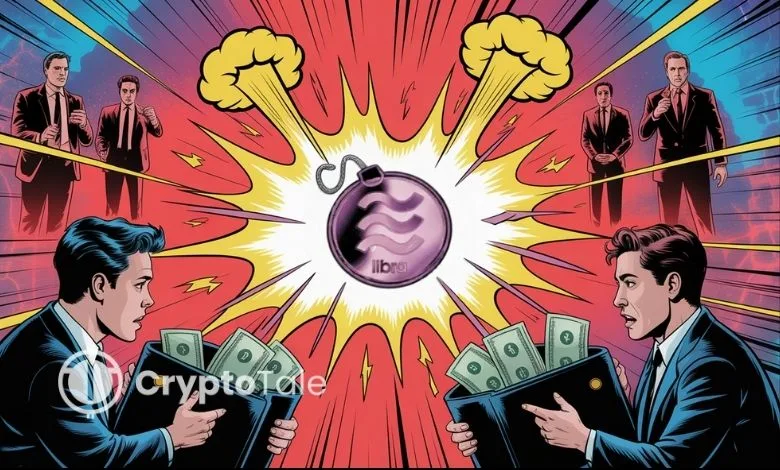Argentina’s LIBRA Scandal Sparks Political Crypto Crisis

- Argentina probes claims that President Milei’s LIBRA promotion drove market frenzy and retail losses.
- Investigators link LIBRA to earlier projects showing repeated promotion and rapid withdrawals.
- Lawmakers warn political crypto endorsements without regulation pose major consumer risks.
Argentina’s political crisis around the LIBRA token continues to unfold, and the story now goes far beyond a single scandal. The case has grown into a global warning about what happens when political leaders directly influence retail crypto speculation without strong oversight. The situation began with a single promotional post but quickly spread into a broader conflict between governance, technology, and public accountability.
Political Promotion Fuels Market Frenzy
Investigators in Argentina released a lengthy report that describes how President Javier Milei promoted the LIBRA token to millions of citizens. He posted personal support on social media, and wallets linked to the project later withdrew more than $100 million. The report states that his public support increased trading demand and created a market rush among retail users. The findings claim that without this involvement, the token would not have grown into a large trading event.
Lawmakers also examined earlier activity that showed similar behavior. Investigators looked at the launch of the KIP Protocol, which Milei validated before its liquidity pools were drained. Analysts traced token movement on-chain and linked the withdrawals to project operators. The sequence matched the pattern that occurred later with LIBRA. Officials said they saw repeated steps that bypassed traditional financial oversight during the launch phases.
The committee reported that 114,410 traders lost money trading LIBRA. Investigators linked the losses to rapid market promotion followed by fast withdrawals through associated wallets. Lawmakers now argue that political influence directly shaped the outcome and exposed weaknesses in Argentina’s consumer protections. They also warned that government involvement in digital asset markets could increase systemic threats if repeated without rules.
Allegations Spread Across Multiple Projects
The conflict now extends beyond one token. Investigators pointed to other promoted projects, including the Vulcano NFT game and CoinX. Regulators raided CoinX during an ongoing fraud investigation, and reports show that political allies had supported the company. These links show a larger pattern in which state figures intersected with speculative assets that lacked the structure of traditional investments.
Lawmakers noted that the rapid rise of retail crypto adoption created a new power gap. Millions of users began trading digital assets without regulatory guardrails, and political figures stepped into the vacuum. The committee said that repeated endorsements from the presidency created a public perception of safety where none existed. This environment led users to trade without third-party oversight or auditing.
Related: Jesse Pollak Confirms $JESSE Launch, Warns of Scams
The report states that the administration disbanded an earlier investigative group shortly after court officials requested banking information. This move increased criticism from political opponents, who argued that regulators need uninterrupted access to data. Representatives from Milei’s party rejected the report and said the investigation lacked broad legislative support. They did not present a counterproposal during the final meeting.
Argentina’s case reflects a growing international trend. More countries now see political actors stepping into digital asset markets as promoters or validators. These actions increase market activity but also reduce the separation between state authority and speculative investment. Global regulators warn that this mix can create long-term risks if governments do not establish clear limits.




